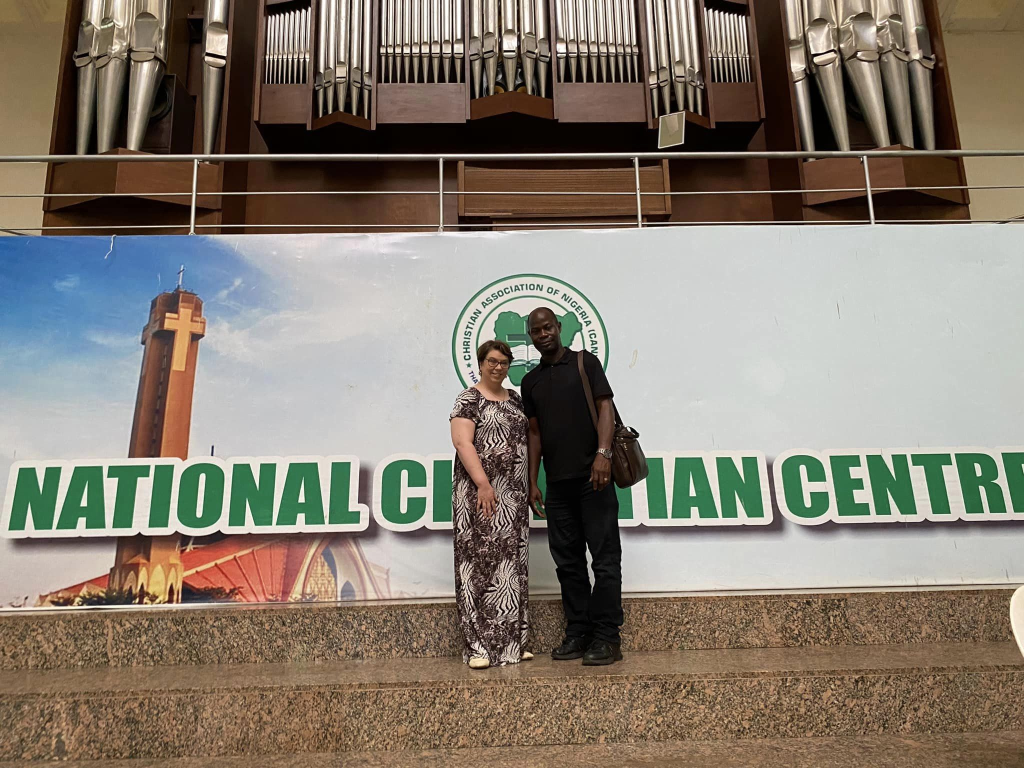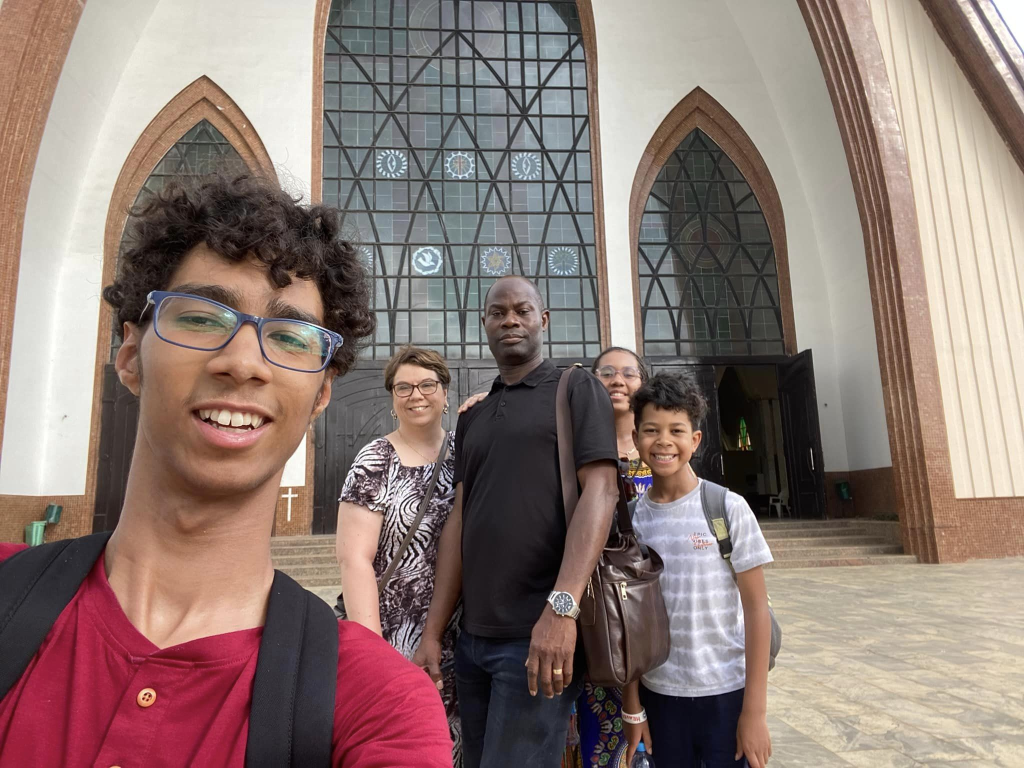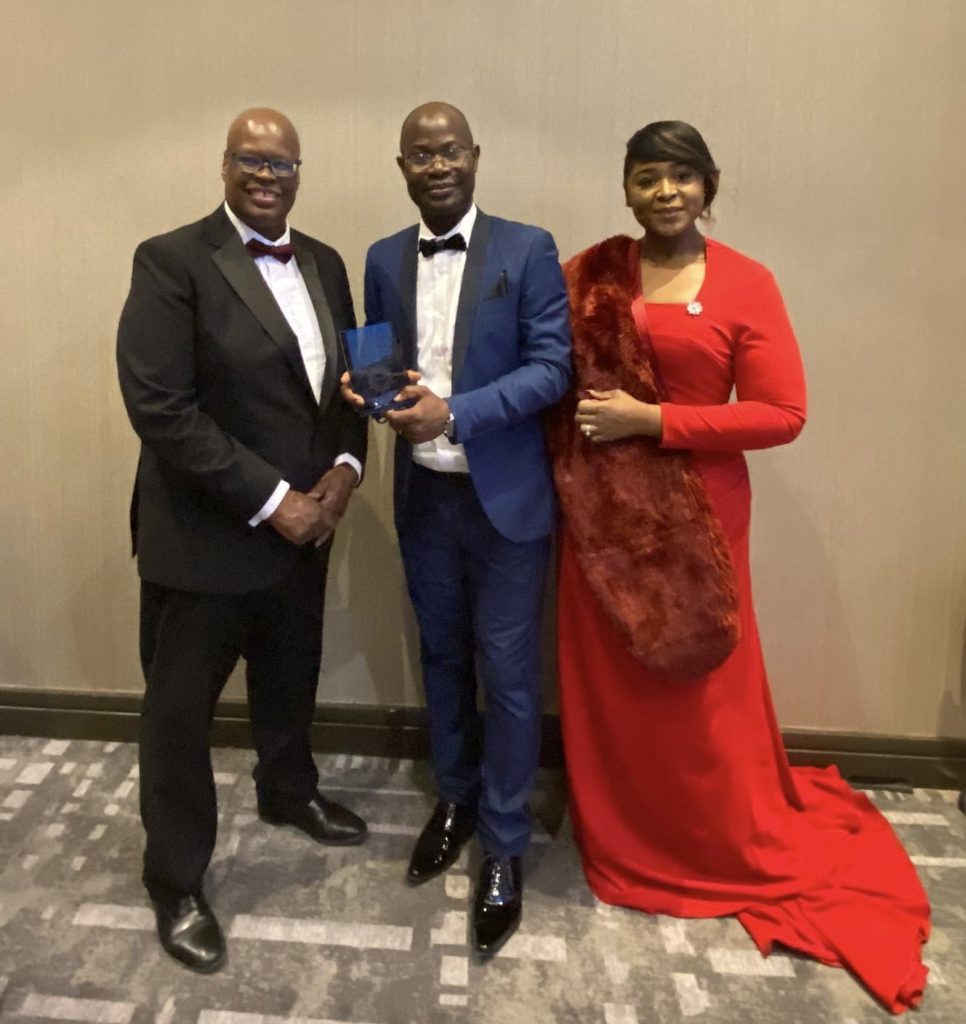CTE’s Sarah Ball asks the questions…
SB: Hello Akpo. Thank you for sitting down with us. Please tell us a little about your early life…
AO: I was born in Nigeria’s oil-producing delta region in a town called Bomadi. My father was a secondary school tutor at a Teacher Training College there. But I spent my early years with my mother in a village called Ayakoromo where I had my primary education. Later, I joined my father in Burutu for secondary education. By this time he had been transferred there and had become a School Inspector with the Ministry of Education. Perhaps due to my father’s influence, I also loved education. I completed my undergraduate and also two postgraduate degrees before leaving Nigeria.
My full name Akpobibibo means ‘World Matters’, perhaps that is why I studied International Relations. This field of study led me to Austria where I studied at the European Peace University (EPU) in Stadtschlaining. I then enrolled in the doctoral programme in Peace Studies at Bradford University in 2001. I completed my PhD in 2005 and proceeded to the USA with a scholarship for a LLM in Law at the St. Thomas University Law School. After that, I worked for a while before returning to the UK. Recently in 2022, I obtained an MBA for Senior Leaders from Bradford University.
SB: Do you come from a church family? How did you come to faith?
I was born into an Anglican family, but I never had the privilege of attending church regularly throughout my primary education period. During the long holidays my elder sisters would come home and gather us together for evening family worship. This would take the form of singing choruses, prayers and sharing scriptures. On a few occasions, we paddled across rivers to the next village on Sundays to attend an Anglican Church. This river journey may take about two to three hours by canoe. I started attending Sunday worship services regularly during my secondary education when I joined my father in Burutu where there was a British-established Anglican church called St Philip’s. This was where I was baptised. I later got confirmed in the Anglican Church.
However, it was at the Full Gospel Business Men’s Fellowship International (FGBMFI) meetings that I committed my life to Christ and got the baptism of the Holy Spirit. I joined the RCCG on campus during my university days. I went to a meeting and my life never remained the same. I was totally set free from all struggles. I became part of the Campus Fellowship for the rest of my days at the University of Benin. I then became an Adult Sunday School Teacher and served as the Secretary of the Youth Fellowship group. Between 1999 and 2001, I was part of several RCCG church planting outreaches around the region.

SB: How did you first become interested in ecumenism?
AO: My journey into ecumenism is down to a cumulation of life experiences. First, the Full Gospel Business Men’s Fellowship International group was a gathering of various churches and denominations working together for the advancement of the kingdom. During my time in Austria, I had attended Orthodox Church Services in Stadtschlaining. While in Bradford, for a time, I lived in the university’s Catholic Chaplaincy. I later got married in All Saints Church of England near the university. And while in Miami, I attended St Thomas University Law School (a Catholic University) and worked at the Florida Baptist Children’s Home after my law studies.
My practical involvement in everyday ecumenism began on my return to Bradford, when I was introduced to the city’s Prayer4Bradford biweekly Breakfast Prayer meetings. In 2021, I became the Chair of the Churches Together group in my area of Bradford. We’re a group with churches including Church of England, Roman Catholic, Moravian, URC, Assemblies of God and other Church expressions.
SB: Tell us a little about your church – the Redeemed Christian Church of God
AO: RCCG is widely known as the largest and fastest-growing Pentecostal church, spread over 194 nations across the five continents. The church was founded in 1952 by Reverend Josiah Akindayomi in Lagos, Nigeria. RCCG is founded on the tripod of prayer, holiness and evangelism. The current General Overseer is Pastor Enoch A. Adeboye, a former university senior mathematics lecturer.
The church started in the UK in 1988, first as a house fellowship in London. Now we have about 900 churches. Our current head of mission in the UK is Pastor Leke Sanusi, a former Nigerian Barrister. He also doubles as the Continental Overseer of Europe.
SB: You are the National Ecumenical Officer (NEO) for the RCCG – what does that role involve?
AO: As the RCCG NEO, my role involves acting as the liaison officer between our denomination and other Christian denominations and networks across the Churches Together in England ‘family’. I work with our Denominational Ecumenical Officers (DEOs) work and other churches on mission and practical things like building use and acquisitions.
SB: What do you think are the benefits for churches investing in an NEO?
AO: Ecumenism is the heart of the prayer of Our Lord Jesus Christ that the Church may be one (John 17:21). In unity, God commands His blessings (Psalm 133:3). So churches should incorporate ecumenism in their missional efforts. In RCCG, we have ecumenism as a module in our training and induction programme of new pastors and as a requirement for ordination of our full pastors. I urge all denominations to appoint and invest in an NEO. It is crucial and the benefits definitely outweigh the costs.


SB: You combine local ministry at the Chapel of Grace Church, Bradford with your national role (as well as being a husband and a father) – what challenges does that bring?
AO: I must say that my local ministry prepared me for my national role and engagements. I love them both. One thing that has helped me is that my wife and children are not left out. We do ministry together. Earlier this year, when I was honoured with an award in London for Outstanding Ecumenical Leadership, my wife was with me.
SB: Many local Churches Together Groups only contain members from the ‘established’ churches. How easy is it for new churches to get involved?
AO: One of the best ways to get involved is to have a spirit of listening and learning. I have learnt so much from the concept of receptive ecumenism. When I find myself on new terrain, I pause to observe carefully and let that guide my actions. I listen and read about concepts that are new to me. With that in mind, I believe new churches can freely and quickly acculturate.
SB: In a place like Bradford, what do you see the new churches bringing to local ecumenism?
AO: The new churches have challenged the existing ways of doing church and worship. Mostly, the African, Caribbean, Asian and Eastern European Christians are very expressive. All these groups have contributed to the vibrancy and the beauty of the church in our city. I have noticed that most of the existing churches have embraced these new churches, for instance by providing a place of worship for them and building sharing.

SB: The ‘CTE family’ contains churches that have a liberal position on issues like human sexuality, as well as churches, like RCCG, which have a conservative view – is it difficult to ‘walk together’? Why do you think we should try?
AO: The prayer of our Lord Jesus Christ is that we should work together (John 17:21). We are all parts of the same body. In the issues where we disagree, it is important that we continuously open the window of dialogue to understand each other’s position.
SB: What figure or figures do you admire from beyond your tradition?
AO: I have always admired the renowned evangelist Billy Graham. He embodied the two key missional qualities of sexual purity and financial prudence. I have tried to model my life and ministry with these in mind.
Read more about the Redeemed Christian Church of God in the UK.